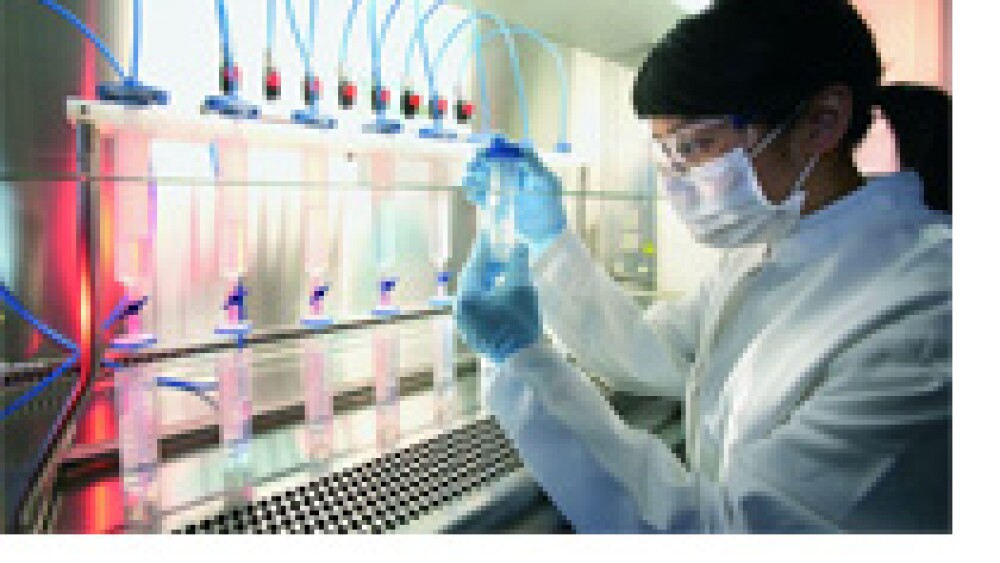April 9, 2015
By Alex Keown, BioSpace.com Breaking News Staff
NEW YORK – Engineered Chimeric Antigen Receptor T-Cell Therapies (CAR-T) are coming to the Big Apple when Cellectis S.A. (CLLS) launches a new subsidiary, Cellectis Inc., in Manhattan later this month.
The company announced the new 12,000-square foot facility, which will include state-of-the-art research laboratories, Thursday morning. The new site will be located on the lower east side of Manhattan at the Alexandria Center for Life Science. The company’s labs will support the development of its CAR-T pipeline in support of ongoing oncology research and other types of therapeutic services, the company said in a press release.
Paris-based Cellectis’ stock was down slightly from its Wednesday’s close of $31.89 following the announcement of the new facility.
The company chose its new location at the Alexandria Center due to the number of biotech companies, academic and medical institutions in the area, Andre Choulika, chief executive officer of Cellectis said in a statement. Additionally Choulika noted the “robust financial” markets in the area, resources the company may like to tap into in support of future funding for research and development.
Cellectis did not disclose how many employees the new facility would support, nor if the positions would be for new hires or transfers of existing employees. A grand opening of the new facility is set for April 16.
T cells are cells present in all humans that survey potential infections and contaminations. When T cells detect an infection, they kill contaminated cells and start amplifying significantly until the infection is resolved. An engineered T cell can in particular be converted into an allogeneic product or resist existing cancer treatments, or it can overcome checkpoint inhibition. Cellectis is focusing on certain types of cancers, particularly leukemia (B cells malignancies) and solid tumors (12 antigenic targets).
Cellectis currently has four drugs in its pipeline, including lead candidate UCART19, used in treatment for leukemias and lymphomas. In February 2014 Cellectis signed an agreement with Servier to develop UCART19. The agreement also included research, development, and potentially the commercialization of five other product candidates targeting solid tumors. The financial terms of the collaboration included an upfront payment of $10 million and up to $140 million for each of the six product candidates potentially developed.
In addition to the deal with Servier, Cellectis and Pfizer Inc. partnered last year to develop CAR-T therapies. Under the agreement Pfizer can choose 15 oncology targets and the two companies will complete preclinical work together. Pfizer will then develop the CART therapies through clinical trials. Cellectis will select 12 oncology targets, four of which it will work with Pfizer on and eight of which it will work on independently.
Cellectis had revenues of $25.3 million in 2014, primarily due to deals signed with Pfizer and Sevier.
BioSpace Temperature Poll
After last week’s news that Gilead had issued a health advisory to doctors, concern is growing after nine patients taking Harvoni or Sovaldi along with another drug, amiodarone, were treated for abnormally slow heartbeats. One of the patients died of cardiac arrest. Three of the nine patients required a pacemaker. That has BioSpace asking, what next?





